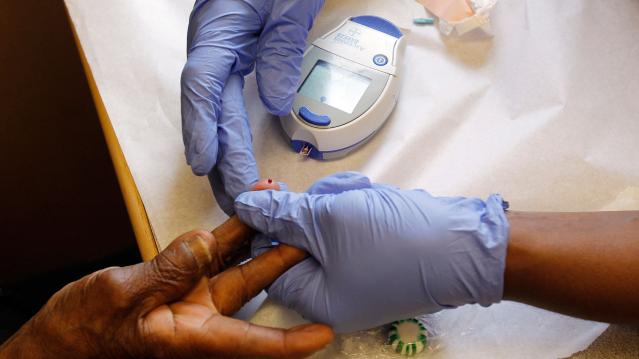This Disease Hikes Health Care Costs By More than $10,000 a Year

Medical professionals and economists have been worried about the growing prevalence of diabetes for years. A new report shows their concerns are well placed. In 2013, the per capita health care bills of consumers with diabetes was $15,000, nearly 71 percent ($10,700) higher than those without the disease, according to the Healthcare Cost Institute.
The brunt of those bills are borne by health care providers, but consumers with diabetes have per capita out-of-pocket costs of $1,922, compared to just $738 for those who do not have diabetes.
For those under the age of 65, health care expenses grew an average 4.1 percent from 2012 to 2013, but the increase was even higher among children, who saw expenses rise 7 percent from 2011 to 2012 and then another 9.6 percent from 2012 to 2013.
Related: Diabetes Detection Up in Pro-Obamacare States
“There has been extraordinary growth in health spending for children with diabetes,” HCCI senior research Amanda Frost said in a statement, citing branded insulin as one factor in the increase.
For children, the costs go beyond medication. A 2012 study in Health Affairs found that people who develop diabetes before age 30 make less money than their peers, are more likely to drop out of high school and less likely to attend college.
One of the most widespread chronic diseases in the United States, diabetes care consumes about 10 percent of U.S. health care spending, according to a study by the University of Michigan.
Small Business Owners Say They’re Raising Worker Pay
A record percentage of small business owners say they are raising pay for their workers, according to the latest monthly jobs report from the National Federation of Independent Business, based on a survey of 10,000 of the group’s members. A seasonally adjusted net 35 percent of small businesses say they are increasing compensation. “They are increasing compensation at record levels and are continuing to hire,” NFIB President and CEO Juanita Duggan said in a statement accompanying the report. “Post tax reform, concerns about taxes and regulations are taking a backseat to their worries over filling open positions and finding qualified candidates.”
The US Is Running Short on More Than 200 Drugs

The U.S. is officially running short on 202 drugs, including some medical staples like epinephrine, morphine and saline solution. “The medications most vulnerable to running short have a few things in common: They are generic, high-volume, and low-margin for their makers—not the cutting-edge specialty drugs that pad pharmaceutical companies’ bottom lines,” Fortune’s Erika Fry reports. “Companies have little incentive to make the workhorse drugs we use most.” And much of the problem — “The situation is an emergency waiting to be a disaster,” one pharmacist says — can be tied to one company: Pfizer. Read the full story here.
Chart of the Day: Could You Handle a Sudden $400 Expense?

More Americans say they are living comfortably or at least “doing okay” financially, according to the Federal Reserve’s Report on the Economic Well-Being of U.S. Households in 2017. At the same time, four in 10 adults say that, if faced with an unexpected expense of $400, they would not be able to cover it or would cover it by selling something or borrowing money. That represents an improvement from 2013, when half of all adults said they would have trouble handling such an expense, but suggests that many Americans are still close to the edge when it comes to their personal finances.
Kevin Brady Introduces Welfare Reform Bill

The Tax Policy Center’s Daily Deduction reports that Rep. Kevin Brady (R-TX), chair of the House Ways and Means Committee on Friday introduced The Jobs and Opportunity with Benefits and Services (JOBS) for Success Act (H.R. 5861). “The bill would rename the Temporary Assistance for Needy Families (TANF) program and target benefits to the lowest-income households. Although the House GOP leadership promised to include an expansion of the Earned Income Tax Credit as part of an upcoming welfare reform bill, this measure does not appear to include any EITC provisions.” The committee will mark up the bill on Wednesday.


